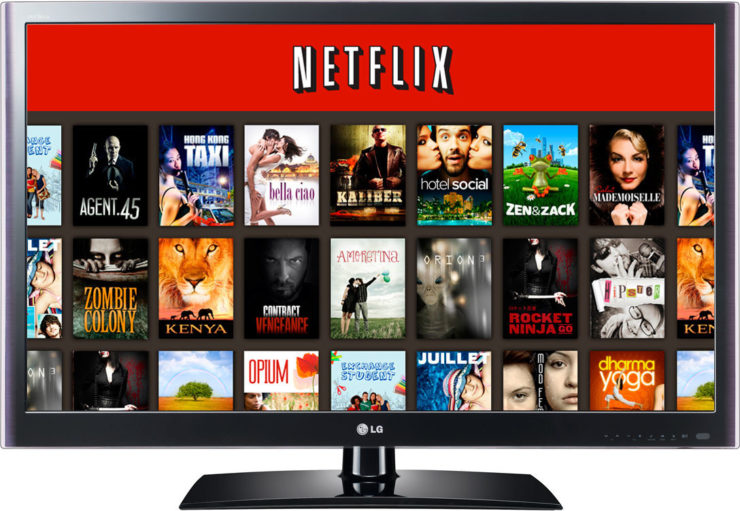Is it possible that 4K streaming content and games will easily deplete your data allowance?

Google Stadia's new 4K game streaming, as well as Netflix and Prime Video's 4K video streaming, can push internet data caps to their limits.
For many years, 4K TVs have dominated TV chat, from Black Friday sales to consumer electronics conventions. However, seeking 4K streaming content for those new TVs has been a frustrating scavenger hunt until recently.
All is starting to shift.
Google's Stadia streaming service, the first cloud-based 4K gaming platform to feature game streaming in 4K resolution with HDR and 5.1 surround sound, will be available in November. It's a game-changer in every sense of the word.
However, all of the beefed-up technology necessitates a beefed-up internet connection as well. To take advantage of Stadia's 4K video quality, you'll need not only higher speeds but also more generous data limits.
Is your connection fast enough?
To get the most out of Stadia's 4K gaming, Google recommends a minimum of 10 Mbps and a maximum of 35 Mbps. You'll need at least 35 Mbps to take advantage of Stadia's 4K resolution, 60 frames per second frame rate, and 5.1 surround sound.
Keep in mind that for most families, that amount would need to be much higher. 35 Mbps assumes that gaming is the only thing concurrently using your internet connection. If you're watching Netflix, scrolling through Twitter, or listening to music on several devices at the same time, the number might be much higher.
As of September 2019, the average fixed broadband speed in the United States was 120 Mbps download and 47 Mbps upload, more than four times the global average, according to Speedtest.net.
While those are impressive figures — and more than enough for 4K streaming — an April report by Microsoft found that 162.8 million Americans lack access to download speeds of at least 25 Mbps and upload speeds of at least 3 Mbps.
Is your data enough data for 4k gaming?
Even if you meet Stadia's 4K game streaming speed specifications, the data limits can be a more difficult challenge.
Some internet providers impose monthly caps on how much data you can use, and with 4K streaming's massive data consumption, you can reach that limit sooner than you think. Many of the more common providers, such as Spectrum and Verizon, do, however, provide unlimited data for all of their plans.
Most companies sell a variety of data plans, with varying fees if you go over the data cap. The following is a breakdown of how each major provider handles data usage:
| Provider | Data cap ranges | Monthly overage costs | Connection type |
| AT&T | 150 GB, 215 GB, 1 TB or Unlimited | $10 per additional 50 GB | DSL, Fiber |
| Buckeye Broadband | 10 GB, 250 GB, 400 GB or unlimited | $15 per additional 50 GB | Cable |
| CenturyLink | 1 TB | None | DSL, Fiber |
| Cox | 1 TB to Unlimited | $10 per additional 50 GB | Cable, Fiber |
| Frontier | Unlimited | None | DSL, FTTN, Fiber |
| HughesNet | 10 to 50 GB | None | Satellite |
| MCTV | Unlimited | None | Cable |
| Mediacom | 150 to 6,000 GB | $10 per additional 50 GB | Cable, Fiber |
| Optimum | Unlimited | None | Cable |
| Shentel | 200 GB to 1 TB | $10 per additional 50 GB | Cable |
| Spectrum | Unlimited | None | Cable |
| Suddenlink | 250 GB to Unlimited | $15 per additional 50 GB | Cable, Fiber |
| Verizon Fios | Unlimited | None | Fiber |
| Windstream | Unlimited | None | DSL, Fiber |
| Xfinity | 1 TB to Unlimited | $10 per additional 50 GB | Cable |
So, how easily can 4K gaming put you over your data cap? Let's take a look at three data-cap-enforced plans to see how much 4K gaming you can fit into them.
| Suddenlink | Xfinity | Mediacom | |
| Data cap | 250 GB | 1 TB | 2 TB |
| Overage charge | $15 per additional 50 GB | $10 per additional 50 GB | $10 per additional 50 GB |
| Hours of 4K gaming under cap | 15.9 | 63.5 | 127 |
It won't take long to hit the data caps on some low-cap plans, such as Suddenlink's Internet 100. Gamers spend an average of a little more than seven hours per week, or more than 30 hours a month, playing video games. Overage charges on Suddenlink's 250 GB plan will amount to about $69 a month.
Keep in mind that this is a fairly uncommon occurrence. Most data limits are far higher, if not unlimited, than 250 GB. However, it ignores the fact that, in addition to 4K game streaming, other devices can consume data during the month.
You can also save a lot of data by streaming in a resolution lower than 4K. The following is how it works:
| Resolution | Speed required | Hours to 1 TB |
| 720p | 10 Mbps | 222.2 |
| 1080p | 20 Mbps | 111.1 |
| 4K | 35 Mbps | 63.5 |
4k Video Stream
Gaming isn't the only thing that consumes more data; 4K video streaming necessitates a far stronger internet connection.
Netflix and Amazon Prime Video are currently the two most popular streaming platforms that offer 4K content. For various resolutions, each of them recommends slightly different internet speeds.
(image)
Although 25 Mbps might be slightly more than you need for 4K streaming, Netflix most likely includes a buffer for other internet-connected devices. Let's see how long it will take to reach different data caps using that figure.
| Data cap | Hours of 4K streaming |
| 250 GB | 22.22 |
| 500 GB | 44.44 |
| 1 TB | 88.89 |
| 2 TB | 177.78 |
Even if you only have a 250 GB data plan, you'd be able to watch Avengers: Endgame in 4K more than seven times per month with that. Keep in mind, though, that this does not account for any of the other ways your data is used.
Conclusion
Many broadband plans in the United States now provide speeds that are capable of 4K streaming with no data limits. If you're thinking about signing up for Google Stadia but are already on a data-capped plan, now could be a good time to move. With most providers costing about $10 per 50 GB of data used over your limit, it's probably worth it to spend a little money up front before diving into 4K gaming.
Related Posts
 cheap internet deals
cheap internet offers
cheap internet plans
cheap internet deals
cheap internet offers
cheap internet plans
Unlimited Internet Plans in the US: What’s the Catch?
Are unlimited internet plans in the US truly unlimited? Learn about data caps, throttling, pricing, and how to choose the right plan.
 Technology
Technology
15 Intriguing Facts About the Internet You’ll Love
15 intriguing facts about the internet, from submarine cables to data usage trends and speed insights that impact your daily connection.
 Safety
Safety
Always Check the Website You Visit
Learn how to check if a website is safe before entering personal information. Protect yourself from scams, phishing, and malicious websites.
 Safety
Safety
How to Secure Video Calls and Prevent Hacks
Learn how to secure video calls, prevent meeting hacks, enable MFA, protect accounts, and safeguard remote meetings with practical security best practices.
 Internet Bundles
Technology
Internet Bundles
Technology
Is AT&T Customer Service Good? Support Review
Is AT&T customer service good? Explore support options, phone numbers, live chat access, and real performance insights for residential and business users.